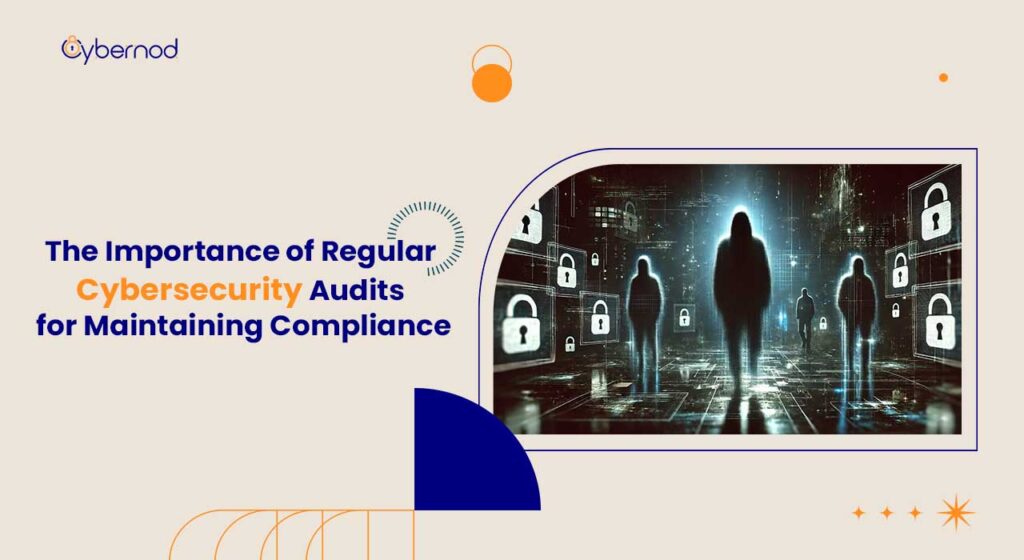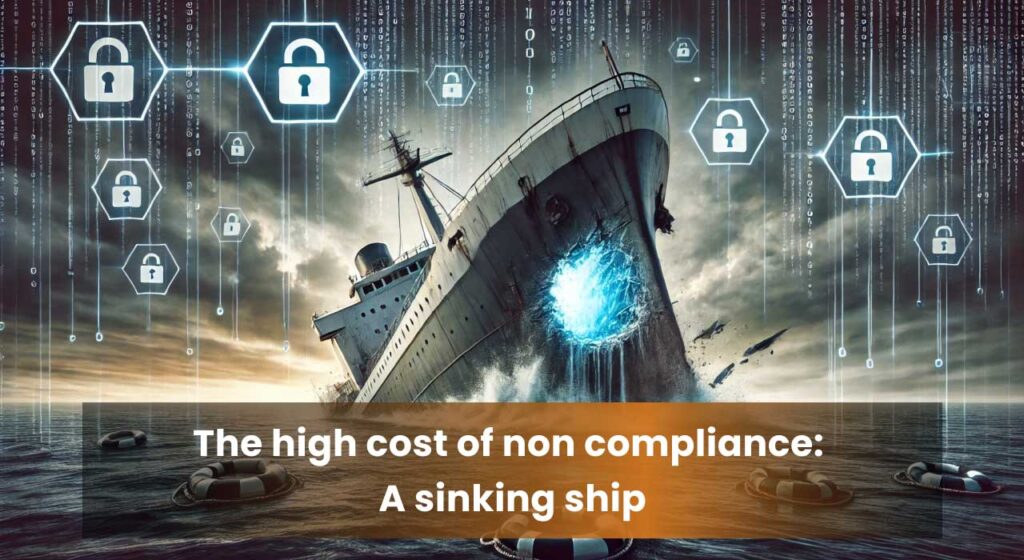
The intricate tapestry of modern business is inextricably woven with digital technology. While this interconnectivity has ushered in unprecedented opportunities, it has also amplified the specter of cyber threats. The United Arab Emirates, a global hub for commerce and innovation, is not immune to these challenges. In fact, the nation has witnessed a surge in cyberattacks targeting businesses of all sizes, from small enterprises to multinational corporations.
A cybersecurity audit serves as a rigorous examination of an organization’s IT infrastructure, systems, and processes to identify vulnerabilities and assess compliance with industry standards and regulatory frameworks. In the UAE, adherence to cybersecurity regulations, such as those mandated by the Central Bank of the UAE, is paramount to safeguarding sensitive data and maintaining operational continuity. This article delves into the critical role of regular cybersecurity audits in fortifying an organization’s defenses, mitigating risks, and ensuring ongoing compliance with the UAE’s stringent regulatory landscape.
Understanding Cybersecurity Audits

Lorem ipsum dolor sit amet, consectetur adipiscing elit. Ut elit tellus, luA cybersecurity audit is a comprehensive evaluation of an organization’s IT infrastructure, systems, and processes to identify vulnerabilities, weaknesses, and compliance gaps. It serves as a diagnostic tool to assess the overall security posture of an organization.ctus nec ullamcorper mattis, pulvinar dapibus leo.
Several types of cybersecurity audits exist, each with a specific focus. A vulnerability assessment identifies weaknesses in systems and networks that could be exploited by malicious actors. Penetration testing, on the other hand, simulates a cyberattack to uncover exploitable vulnerabilities. A compliance audit determines an organization’s adherence to industry standards and regulatory requirements, such as those outlined in the UAE Cybersecurity Law.
Conducting regular cybersecurity audits offers numerous benefits. By proactively identifying and addressing vulnerabilities, organizations can significantly reduce the risk of data breaches and financial losses. Moreover, audits help to strengthen an organization’s security posture, build trust with customers and stakeholders, and demonstrate compliance with regulatory mandates.
Regular audits can also aid in identifying potential areas for improvement, such as employee training or security awareness programs. By investing in cybersecurity audits, businesses can safeguard their digital assets and protect their reputation.
The Regulatory Landscape in the UAE

The UAE has established a robust regulatory framework to safeguard its digital ecosystem. The UAE Cybersecurity Law serves as the cornerstone of the nation’s cybersecurity strategy, outlining comprehensive measures to protect critical infrastructure, government entities, and businesses from cyber threats. This legislation imposes stringent obligations on organizations to implement robust cybersecurity measures, conduct regular risk assessments, and report cyber incidents promptly.
Moreover, specific industries, such as finance, healthcare, and energy, are subject to additional cybersecurity regulations. For instance, the Central Bank of the UAE has issued directives mandating financial institutions to adopt advanced cybersecurity practices, including data protection, incident response, and third-party risk management.
Non-compliance with these regulations can result in severe penalties, including hefty fines, business disruptions, reputational damage, and even criminal charges. The financial implications of a data breach can be catastrophic, encompassing costs related to legal fees, forensic investigations, public relations, and loss of business. To mitigate these risks, organizations must stay abreast of evolving regulatory requirements and implement proactive cybersecurity measures.
The Cost of Non-Compliance

The repercussions of non-compliance with cybersecurity regulations extend far beyond financial penalties. Data breaches and cyberattacks can inflict substantial financial harm on organizations, including expenses related to incident response, data recovery, legal fees, and public relations. Moreover, the loss of sensitive customer data can erode trust, leading to reputational damage and a decline in customer loyalty. Such incidents can have a long-lasting impact on an organization’s brand and market position.
Beyond financial losses and reputational harm, non-compliance exposes organizations to significant legal liabilities. Regulatory bodies in the UAE impose stringent penalties for data breaches and cybersecurity failures. These penalties can range from substantial fines to business disruptions and even criminal charges. To safeguard their operations and avoid these consequences, businesses must prioritize cybersecurity and invest in robust compliance measures.
Identifying Vulnerabilities Through Audits

A cornerstone of effective cybersecurity is the ability to identify and address weaknesses within an organization’s IT infrastructure. Cybersecurity audits serve as a critical tool in this process, providing a comprehensive assessment of an organization’s security posture.
Vulnerability assessments and penetration testing are essential elements of a comprehensive cybersecurity audit. Vulnerability assessments identify potential weaknesses in systems, applications, and networks, while penetration testing simulates cyberattacks to uncover exploitable vulnerabilities. By combining these techniques, organizations can gain a comprehensive understanding of their exposure to cyber threats.
Risk assessment is essential for prioritizing vulnerabilities and allocating resources effectively. By evaluating the likelihood and potential impact of each vulnerability, organizations can focus on mitigating the most critical risks. This risk-based approach ensures that security measures are aligned with the organization’s overall business objectives.
| Stage | Description |
|---|---|
| Planning | Define audit scope, objectives, and methodology. |
| Information Gathering | Collect relevant data on systems, networks, and security controls. |
| Vulnerability Assessment | Identify weaknesses in systems and applications. |
| Penetration Testing | Simulate cyberattacks to uncover exploitable vulnerabilities. |
| Risk Assessment | Evaluate the likelihood and impact of identified risks. |
| Reporting | Document audit findings, recommendations, and remediation plans. |
By following a structured audit process and leveraging the insights gained from vulnerability assessments and penetration testing, organizations can effectively identify and address weaknesses, reducing their overall cyber risk.
Enhancing Compliance Posture

Regular cybersecurity audits are instrumental in aligning businesses with the complex regulatory landscape. By systematically assessing an organization’s security practices against applicable standards and laws, such as the UAE Cybersecurity Law, audits provide a clear roadmap for achieving compliance.
Audits serve as a tangible demonstration of an organization’s commitment to cybersecurity to regulators. By presenting audit findings and remediation efforts, businesses can substantiate their compliance posture and reduce the risk of penalties. Moreover, audits can identify gaps in security controls and processes that may otherwise go unnoticed, allowing organizations to address vulnerabilities proactively and prevent regulatory breaches.
Implementing corrective actions based on audit findings is paramount to enhancing compliance. By prioritizing and addressing identified weaknesses, organizations can strengthen their security posture and reduce the likelihood of future incidents. This iterative process of audit, assessment, and improvement is essential for maintaining a robust compliance framework.
For a deeper understanding of how cybersecurity directly impacts the sustainability and growth of your small business in the UAE, explore our follow-up article: “The Impact of Cybersecurity on Small Business Sustainability and Growth.”
Building a Culture of Cybersecurity

A robust cybersecurity posture requires more than technological safeguards; it necessitates a culture of security permeating all levels of an organization. Employee awareness and training are foundational to this culture. By equipping employees with the knowledge to recognize and respond to cyber threats, organizations can significantly bolster their defenses. Cybersecurity audits play a pivotal role in identifying gaps in employee training. Through the assessment of incident response procedures and employee behavior, audits can pinpoint areas where additional training is required.
Ultimately, the tone for cybersecurity is set at the executive level. Strong leadership commitment is essential for driving a culture of security. By prioritizing cybersecurity initiatives and allocating adequate resources, management can demonstrate the organization’s dedication to protecting its digital assets and fostering a security-conscious workforce.
Choosing the Right Cybersecurity Provider

Selecting the appropriate cybersecurity provider is a critical decision for any organization. A qualified provider offers specialized expertise, resources, and technology to safeguard an organization’s digital assets. When choosing a provider, several factors should be considered, including the provider’s experience, certifications, service offerings, and customer support.
For businesses operating in the UAE, partnering with a cybersecurity provider with a deep understanding of local regulations is paramount. Such providers possess the necessary knowledge to navigate the complex regulatory landscape, ensuring compliance with laws such as the UAE Cybersecurity Law. By leveraging their expertise, organizations can mitigate risks, avoid penalties, and build trust with customers and stakeholders.
Regular cybersecurity audits are indispensable for safeguarding an organization’s digital assets and maintaining compliance with the stringent regulatory environment in the UAE. By identifying vulnerabilities, assessing risks, and ensuring adherence to industry standards, audits serve as a cornerstone of a robust cybersecurity strategy.
To thrive in today’s digital landscape, businesses must prioritize cybersecurity and make regular audits an integral part of their risk management framework. By investing in comprehensive cybersecurity measures, organizations can protect their reputation, safeguard sensitive data, and build trust with customers and stakeholders.
Categorized in:
Tagged in:
AI, cyber threats, cybersecurity, Maintaining, Phishing Simulations, Small Businesses, UAE
Comments